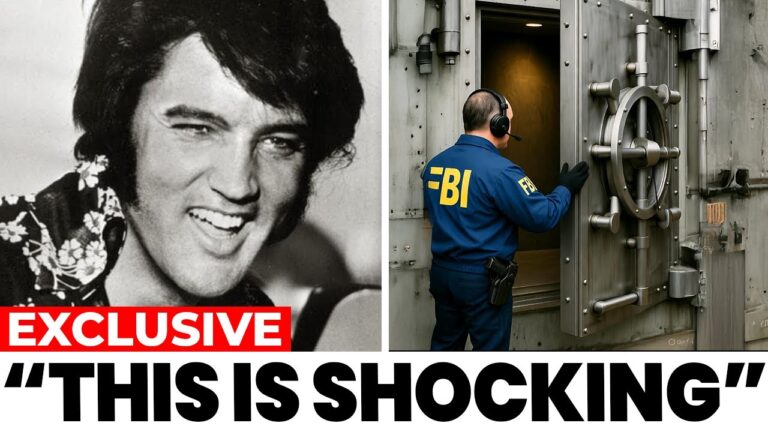It had been nearly three months since the afternoon when the world went still at 3:49 p.m.
The day her sweet baby boy, Elijah, took his final breath.
The day his brave little heart finally found peace after fighting for so long.

Two hours before that moment, Elijah had whispered the words that would forever stay with his mother:
“Pick me up.”
And she did.
She gathered him into her arms—small, fragile, but still warm—and held him close to her heart.
It was a moment no mother should ever have to live through, yet one she would hold onto for the rest of her life.

For months, Elijah had fought with every ounce of strength he had.
He endured five cycles of chemotherapy, a stem‑cell harvest, major surgery to remove his tumor and adrenal gland, twelve rounds of radiation, and five cycles of immunotherapy.

Each round left his body weaker, but his spirit only shone brighter.
Every nurse who walked into his room saw it—the light in his eyes, the smile that never quite left his face, even when the pain tried to steal it away.
When the scans revealed that the disease had returned, it felt like the air had been taken from the room.
Relapse.

The word itself carried the weight of despair.
But Elijah’s family didn’t crumble.
They gathered around him, just as they always had, and decided to fight again—harder this time.

His mother remembered writing an update for everyone who loved him:
“We have made the hard decision to move forward with high‑dose chemo and stem‑cell transplants.
It’s a decision we really didn’t want to take, but with our options running out, and Elijah still having a tiny spot of disease in his pelvic bone, we must go on.
He’s so small, so little, but so strong.”

Those days felt endless.
Machines hummed softly beside his hospital bed.
His tiny hand, covered in tape and tubing, would sometimes reach for hers.
When he smiled, everything else—every beep, every fear—disappeared for a moment.

There were small victories.
Days when he felt strong enough to sit up.
Days when he wanted to swing on his favorite swing in the backyard
The swing had become his safe place.
A space where he could laugh, sing his favorite songs, and for a few minutes forget the tubes, the medications, the pain.

His mother recorded a short clip once—a five‑minute burst of pure Elijah joy—his legs pumping back and forth as he soared into the sky, his laughter echoing in the breeze.
It was one of her favorite memories.
That sound of happiness, so rare and so precious during those heavy months.

But soon, the signs became impossible to ignore.
Breathing grew harder.
The x‑rays showed darkness where his left lung should have been.

No one knew if it was the tumor or a collapsed lung.
All they knew was that every breath was now a battle.
The doctors gently offered the option of admitting him again.
But his parents knew Elijah didn’t want to spend another night surrounded by machines.

He wanted to be home.
He wanted to see his room, his toys, his swing, his dog curled at the foot of his bed.
So, they brought hospice care home.
The house filled with quiet footsteps, whispered prayers, and the faint hum of the oxygen machine that Elijah refused to use because the nasal cannula made him uncomfortable.

Every morning felt heavier.
Each sunset felt like a countdown.
His parents watched helplessly as their warrior faded day by day, holding on to the hope that somehow, someway, he would turn around.

Then came that final afternoon.
The light filtering through the curtains was golden, soft.
Elijah’s eyes were tired but calm.
“Pick me up,” he said.

Two simple words that shattered and healed her heart all at once.
She lifted him, pressing her cheek against his hair, breathing him in—his scent, his warmth, his everything.
For two hours, she held him.

She whispered that she loved him.
That she was proud of him.
That he was free to rest.

At 3:49 p.m., her sweet baby boy was finally free.
Free from the pain.
Free from the fear.
Free from the disease that had stolen so much, yet never managed to steal his light.

Now, nearly three months later, his mother still finds herself standing by the swing sometimes.
It creaks gently in the wind, as if he’s still there.

Sometimes, she swears she can hear him laugh.
That same little giggle that used to fill the backyard with life.
She scrolls through old photos—Elijah dressed in costumes, pretending to be superheroes, dinosaurs, astronauts.
Each photo tells a story of resilience.

Of a little boy who, even in pain, chose to smile.
He sang songs from his hospital bed, hummed lullabies back to his mother, and found joy in the smallest things.
There’s one photo she keeps framed by her bedside—Elijah in his favorite pajamas, swinging as the sun sets behind him.
His eyes half‑closed, his face glowing with peace.

It was taken just weeks before his final day.
Looking at it now, she realizes he already knew.
He was saying goodbye in his own quiet way—living, smiling, shining until the very end.

Grief, she has learned, isn’t something you “get over.”
It becomes a part of you.
Some mornings, she still reaches for his medicine bottles before remembering.

Some nights, she dreams she hears his voice calling, “Mommy, pick me up.”
And when she wakes, her arms ache with the emptiness of what used to be there.
But she also knows that love doesn’t end.
It changes shape.

It lingers in the sunlight, in the whisper of the wind, in the laughter of other children at the park.
It lives on in the people who remember Elijah—the nurses who still talk about his courage, the neighbors who left toys by his door, the strangers who prayed for him from across the world.

Sometimes, she sits by his resting place with a handful of wildflowers, talking softly.
She tells him about the clouds, about his friends, about how much he’s still loved.
And she imagines him somewhere beyond the sky—healthy, laughing, running barefoot through fields of light.

She imagines her boy meeting another little angel up there, perhaps one who fought the same battle.
“Neuroblastoma, you did it again,” she whispers through her tears.
“You took him—but you can’t take his light.”

Because Elijah’s story is not one of defeat.
It’s one of love that endured pain.
Of courage that outshone fear.
Of a child who lived more fully in a few short years than many do in a lifetime.

His mother keeps sharing his story—every update, every memory—so that the world remembers what strength looks like in its purest form.
She tells others to hold their children tighter, to find joy in the ordinary, to never take a single day for granted.
The house still feels empty.
His room remains just as he left it—the costumes neatly folded, the little swing in the yard untouched.

But his spirit fills every corner.
It’s in the music she plays softly at night.
It’s in the warmth that lingers when she looks at the stars and whispers, “I love you so much, Elijah.”

Elijah’s journey was short, but his impact stretches far beyond time.
He reminded the world what bravery looks like when worn by a child.
He taught everyone who met him that strength isn’t measured by how long you live—but by how deeply you love.

And in that final moment—when he looked up and said, “Pick me up”—he taught his mother the most profound truth of all:
That love is eternal.
That even when small arms fall still, the bond remains unbroken.
That somewhere in heaven, there is a little boy, free and laughing again, swinging higher than ever, waiting for the day when his mother will once more hold him close.
This is Caleb—our youngest son. He’s just three years old, full of life, questions, and boundless energy. In July, he’ll turn four. But even now, he understands something many grown-ups often overlook: sometimes, Daddy doesn’t get to stay home.
For nearly 14 days in a row, Caleb’s father—my husband, Jonathon—has worked back-to-back shifts as a police officer. He wakes up early, puts on his uniform with the same sense of duty he has always carried, and walks out the door knowing full well what he might face out there. Every time, he kisses us goodbye. Every time, we pray he comes back safe.
The photo we captured says more than words ever could. It was early in the morning. Jonathon had just left for yet another shift, and Caleb stood quietly by the window, watching the patrol car fade down the street. No tantrum. No cries. Just quiet longing.
It’s a moment I’ll never forget.
Caleb doesn’t fully understand what his father does. But he knows he helps people. He knows he wears a badge and that sometimes it means he misses bedtime stories, weekend pancakes, or even holidays. And yet, Caleb looks up to him with the kind of admiration only a child can give. To him, Daddy isn’t just a police officer—he’s a hero.
Our other two sons feel the same way. They talk about their dad with pride, drawing pictures of him in uniform, pointing him out when they see police officers in books or on TV. They brag about his bravery without even understanding the depth of what it means to wear that uniform.
Jonathon doesn’t ask for recognition. He doesn’t seek praise. He simply does what needs to be done—for our community, for his team, and most importantly, for our family.
Behind every badge is a home. A family that waits. A child who watches. A wife who worries every time the phone rings after dark. There are missed meals, milestones celebrated late, and exhausted hugs at the end of long days.
But there’s also pride. So much pride.
I wish more people saw this side of law enforcement—the quiet sacrifices, the love left behind at home, the small moments that carry so much weight.
To Jonathon: I see you. I see the long hours, the risks you take, and the love you give even when you’re drained. I see how our sons’ eyes light up when you walk through the door, and I see how much of yourself you give to all of us, every single day.
And I could not be prouder.
This is the life we live—a life of service, of sacrifice, of hope. And we wouldn’t trade it for anything.





